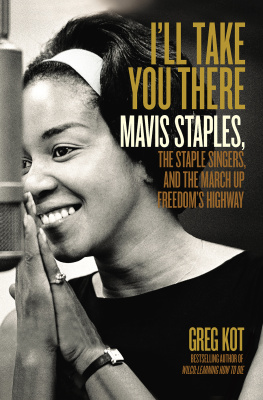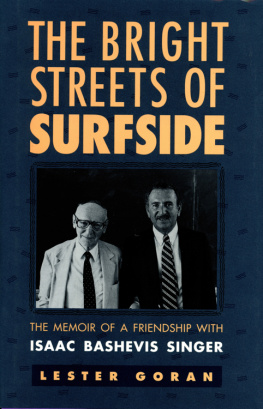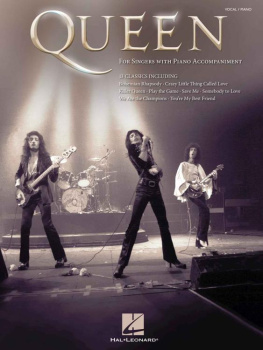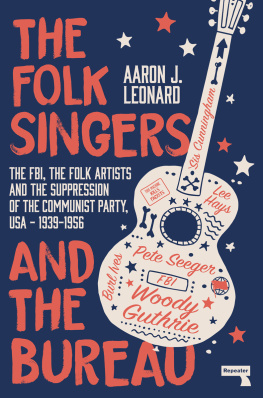Thank you for downloading this Scribner eBook.
Join our mailing list and get updates on new releases, deals, bonus content and other great books from Scribner and Simon & Schuster.
C LICK H ERE T O S IGN U P
or visit us online to sign up at
eBookNews.SimonandSchuster.com
Contents

For Deb, Katie, and Marissa, always
Prologue

Freedom Highway in sequined flats
I m tired and Im feeble, declares Mavis Staples, with a high-beam smile that says exactly the opposite.
Mavis pretends to shuffle into the room as though a step away from collapse while paraphrasing Thomas Dorseys Take My Hand, Precious Lord, a song that has been with her since she started to stir church congregations as an eight-year-old vocalist. Her sister Yvonne rolls her eyes in mock exasperation. A small flock of onlookers starts to laugh, breaks away from their backstage hospitality beers, and surges toward the sisters to clasp hands and offer hugs in a kind of group anointing.
Mavis and Yvonnecofounders of the Staple Singers with their father, Roebuck Pops Staples, and siblings Pervis and Cleothahave arrived at the Hideout, an unassuming Chicago bar tucked amid West Side warehouses. In a few minutes they will be on a big stage outdoors in front of a hometown festival crowd of eight thousand just as the sun is disappearing on a mid-September day in 2011. Mavis and Yvonne, both in their seventies, have been up since 5 a.m. after playing a show the night before in Michigan. Mavis has been pumping vitamin C to fight off a cold and a scratchy voice. This is loosening me up, though, she says as laughter and conversation fill the Hideouts back room.
Donny Gerrard, one of her backing vocalists, does not by any stretch consider himself a gospel singer, or even a believer. But Mavis has a way of pulling even skeptics along in her wake. She is an artist who grew up in church and on the civil rights battlefront, but she doesnt finger-point, preach, or prod. She leads with her enthusiasm for the day ahead.
When I was asked to join her group, I was worried about the God stuff, frankly, says Gerrard, adjusting his tortoiseshell glasses as he watches Mavis banter with her well-wishers. Dont believe in it, myself. But damn, if she doesnt make you feel something else is at work when shes around.
The tall, curly-haired singer takes off the glasses, and his eyes gleam. Hes ridden the music industry roller coaster in a career that has had failures, hits (he sang Skylarks huge 70s single Wildflower), and a few health problems.
It doesnt matter how low you feel, he says. Sometimes I carry it on the stage with me, and then I see Mavis and its like you cant feel down anymore. Shes always up no matter what happened that day.
Mavis looks into her carrying bag and with the drama of a magician makes an announcement: I know what the stage needs! She digs out the prize. It needs glitter! Every singer needs her stage flats, sequined flats!
A dozen onlookers scramble for their cell phones to take photos of the diva wear. Yall are some slow paparazzis. Mavis laughs as the amateur photographers click away and begin texting, tweeting, and Instagramming their friends.
Mavis, her glitter flats and matching sequined black scarf ascend the five steps onto the stage to cheers that stretch across a vast lot. Fans perched in windows and on rooftops of the buildings beyond wave their greetings. Yvonne, just off her sisters right shoulder, is clapping just as boisterously. Nonbeliever Gerrard joins Mavis, Yvonne, and their band in an a cappella version of Wonderful Savior: I am His, and He is mine. Within seconds, the audience turns into Maviss moonlight choir with their rhythmic clapping.
Violin-playing indie-rocker Andrew Bird joins for The Bands The Weight, which the Staple Singers had performed as part of The Last Waltz concert in 1976. Bird and Gerrard each take a verse, and then Mavis takes it to church, as her old friend Levon Helm used to say, a tambourine accenting every beat. Mavis twirls her hands above her head, and Yvonne is loving it, applauding her sisters feistiness. Bring it on, Mavis roars, as she slaps her chest. Put the load, put the load, put the load right on me.
When the Staple Singers civil rights anthem Freedom Highway arrives, the band rolls into a marching beat and the call-and-response vocals between Mavis and her backing singers pick up the pace, more urgent with each turn. March! Up freedoms highway! It is an echo of 60s freedom marches, the sound of citizen soldiers girding for a beatdown, in the name of a cause that they believe is worth their blood and tears, and quite possibly their lives.
My father, Pop Staples, wrote that song in 1965, Mavis says as the anthem winds down. Yes, he did, he wrote it for the big march from Selma to Montgomery, Alabama. We marched, we marched, and we marched, and it aint over yet!
The band rumbles, voices from the audience shout encouragement. Most of the fans werent even born when activists, ministers, and everyday citizens locked arms and marched into a gauntlet of police clubs, snarling dogs, and water cannons in the name of racial equality.
Im still on that highway, Mavis says. And I will be there until Dr. Martin Luther Kings dream has been realized.
At the side of the stage, the teenage Chicago musician Liam Cunningham is watching with a few members of his band, Kids These Days, who had played earlier in the day. Theyve read about the freedom marches in school, seen the news footage of the shaking fists and swinging police batons. Now theyre standing a few feet from one of the leading messengers of that era. Cunningham is mesmerized. Her existence brings tears to my eyes, he says softly.
The show doesnt so much conclude as get passed on, one voice to the next. Mavis hands the closing duties to the audience, which embraces a twelve-minute version of the Staple Singers Ill Take You There and sings it back to her. Mavis waves and exits alongside Yvonne, then hugs her brother, Pervis, who is standing in the wings applauding. She and her sister slide into a waiting black limousine behind the stage, roll down a tinted window, and wave to a small group of fans.
Time to remove the sequined flats, Mavis says with a laugh. They got more work to do.
1
Voices in the Mississippi night
O ne gray, cold Mississippi Delta day in 1920, five-year-old Roebuck Staples peered out his window and saw a mule-driven wagon slowly approach his family home to take his mother away. After giving birth to, cooking for, and looking after fourteen children, all the while toiling in the cotton fields, Florence Stapless heart had finally given out.
Rain began to pummel the funeral procession as it marched the Staples family matriarch several miles to her grave in the nearby town of Drew. Young Roebuck was in a daze, miserable in the rain and still trying to come to grips with the tragedy that had suddenly landed on his family. What happened next astonished him. As the procession trudged along the muddy, rain-splattered road, a white man hurried out the front door of his home toward the wagon with a blanket in his arms. He gently draped it over the coffin and ran back.
In Roebucks world, blacks and whites lived and worked in close proximity but rarely interacted, and then only in matters of business. If a white person ever approached, it was usually from a position of strength, condescension, or hostility. Roebuck had already been warned by his father to keep his distance from their white neighbors on the Dockery Plantation.
Next page












